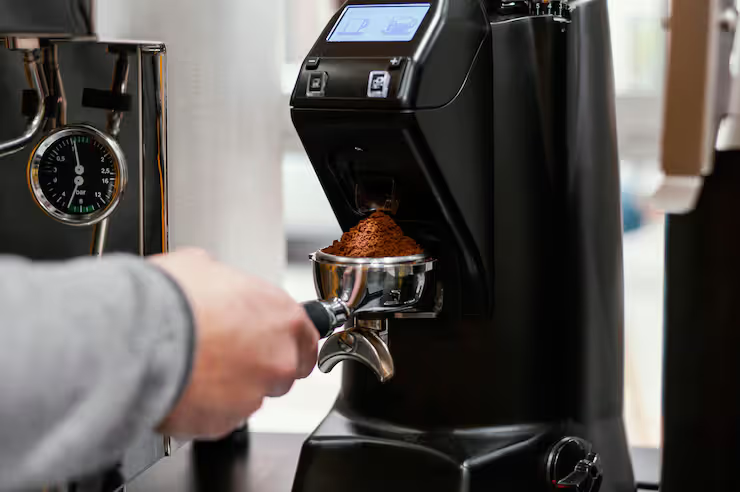A Complete Explanation of Coffee Machines: Facts, Information, and Useful Advice
Coffee machines have become an essential appliance for homes, offices, and cafés around the world. They exist to simplify and standardize the process of brewing coffee, replacing traditional manual methods with faster, more efficient systems. From drip machines to advanced espresso models, these devices help people enjoy consistent coffee flavors while saving time and effort.
The popularity of coffee culture in recent decades has fueled innovation in machine design, offering everything from single-serve pod machines to smart, app-controlled brewers. Whether for daily routines, hospitality businesses, or social gatherings, coffee machines now play a central role in modern lifestyles.
Importance
Coffee machines matter today because of how they connect convenience, culture, and productivity. Millions of people start their day with coffee, making reliable preparation a necessity. For workplaces, providing coffee can increase focus and employee satisfaction. For cafés and restaurants, machines are critical for delivering consistent quality at scale.
Key reasons why coffee machines are important:
-
Time efficiency – brew faster than traditional methods.
-
Consistency – maintain reliable flavor and strength.
-
Variety – allow brewing of different styles (espresso, latte, cappuccino, filter coffee).
-
Accessibility – make coffee preparation simple for anyone.
Problems they solve include reducing manual labor, minimizing brewing errors, and supporting the growing demand for specialty coffee. They affect a wide audience—individuals at home, businesses offering beverages, and entire industries built around coffee culture.
Recent Updates
In the last year, coffee machine technology has seen notable advancements:
-
Smart integration (2024–2025): Many models now connect with mobile apps and voice assistants, allowing scheduling and remote brewing.
-
Sustainability focus: Brands are shifting toward eco-friendly designs with energy-saving modes and recyclable pods.
-
Health-conscious trends: Machines now often feature precise temperature control to preserve antioxidants and reduce bitterness.
-
Compact and portable designs: The market has expanded with travel-friendly coffee makers and mini espresso devices.
According to 2024 reports, the global coffee machine market continues to grow, particularly in North America, Europe, and Asia-Pacific, driven by higher coffee consumption and the rise of specialty cafés.
Laws or Policies
Coffee machines are affected by a range of rules and policies:
-
Electrical safety standards: Machines must comply with certification requirements such as CE (Europe), UL (United States), or BIS (India).
-
Environmental regulations: Many regions have introduced restrictions on single-use plastic pods, encouraging recyclable or biodegradable alternatives.
-
Energy efficiency programs: The European Union’s Eco-design Directive and ENERGY STAR in the United States push manufacturers toward producing machines with lower power consumption.
-
Food safety compliance: Since machines come in contact with consumable products, materials used in their construction must meet hygiene and safety standards set by health authorities.
These policies guide both manufacturers and consumers, ensuring machines are safe, efficient, and environmentally responsible.
Tools and Resources
Several tools and resources can help coffee enthusiasts and businesses make the most of coffee machines:
-
Mobile apps: Apps like Coffee Timer and Beanconqueror help track brew ratios, grind sizes, and brewing times.
-
Websites: Specialty coffee websites and forums provide brewing guides, machine comparisons, and troubleshooting help.
-
Calculators: Online brew ratio calculators help users measure water-to-coffee proportions for consistent flavor.
-
Templates and charts: Grind size charts, brew time guides, and temperature reference sheets simplify the learning process.
| Tool / Resource | Purpose |
|---|---|
| Brew Ratio Calculator | Helps find ideal coffee-to-water ratio |
| Beanconqueror App | Tracks brewing methods and logs results |
| Specialty Coffee Forums | Community discussions and troubleshooting |
| Grind Size Chart | Guides on correct grind level per brew type |
These resources support both beginners and experienced users, making coffee preparation more precise and enjoyable.
FAQs
What are the main types of coffee machines?
The main types include drip coffee makers, espresso machines, pod-based systems, French press machines, and smart app-enabled brewers. Each type caters to different preferences for flavor, convenience, and style.
How often should a coffee machine be cleaned?
Basic cleaning should be done after every use by rinsing removable parts. Deep cleaning and descaling should be performed every 1–3 months depending on water hardness and usage frequency.
Are pod coffee machines environmentally friendly?
Traditional pods are not, but many brands now offer recyclable or compostable versions. Choosing eco-friendly pods or reusable capsules reduces environmental impact.
Do smart coffee machines use more electricity?
Not necessarily. Many are designed with energy-saving features such as automatic shut-off and low-power standby modes. Energy consumption depends more on frequency of use than connectivity.
Which coffee machine is best for beginners?
Drip coffee makers and single-serve pod machines are often recommended for beginners due to their ease of use and minimal setup requirements.
Conclusion
Coffee machines have transformed the way people prepare and enjoy coffee, bridging convenience, culture, and innovation. They are no longer limited to cafés but have become everyday appliances that shape routines and social interactions.
With ongoing updates in smart technology, sustainability practices, and government regulations, the coffee machine industry continues to evolve. Understanding the basics, staying informed about policies, and using available tools can help individuals and businesses make better choices.
For anyone who values reliable, high-quality coffee, learning about these machines offers not only practical knowledge but also insights into a global culture that keeps expanding year after year.
